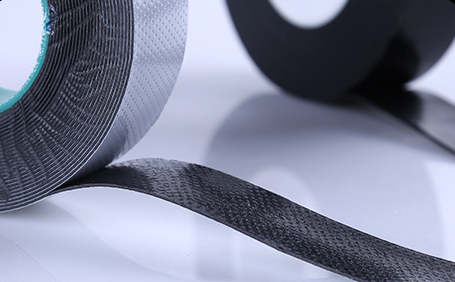The Uses and Benefits of Rubber Tape Insulation
Rubber tape insulation is an essential material widely used in various industries, including electrical, automotive, and construction. Made from high-quality rubber, this tape offers excellent insulating properties, flexibility, and durability, making it ideal for numerous applications.
One of the primary uses of rubber tape insulation is in electrical applications. It is commonly used to wrap wires and cables, providing a protective barrier against moisture, dust, and other environmental factors. This insulation is crucial for preventing electrical shorts and ensuring safe operation, especially in outdoor or harsh conditions. Rubber tape's high dielectric strength means it can withstand substantial voltage levels, making it perfect for use in electrical installations where reliability is paramount.
Another significant advantage of rubber tape insulation lies in its ability to offer superior adhesion. Unlike traditional electrical tapes that may lose their stickiness over time, rubber tape creates a strong bond to surfaces, ensuring longevity and durability. This feature is particularly important for applications that require tape to remain intact even under stress or movement. Moreover, rubber tape is often self-fusing, which means that when wrapped around itself, it melds into a solid mass, creating a seamless barrier that enhances its insulating properties.
rubber tape insulation

In the automotive industry, rubber tape insulation is used extensively for wiring and cable management. Vehicles experience a wide range of temperatures and environmental conditions, and the reliability of electrical systems is crucial for safety and functionality. Rubber tape not only secures wiring but also protects it from abrasion and vibration, which are common occurrences in moving vehicles. Additionally, this tape's resistance to chemicals ensures that it can withstand exposure to oils, fuels, and other automotive fluids without degrading.
The construction industry also benefits from rubber tape insulation, particularly in HVAC (heating, ventilation, and air conditioning) applications. It is frequently used to insulate pipes and ductwork, helping to maintain temperature and prevent energy loss. By providing an effective thermal barrier, rubber tape contributes to improved energy efficiency in buildings, reducing heating and cooling costs over time. Furthermore, its flexibility allows it to conform to various shapes and sizes, making it suitable for diverse installation scenarios.
Another noteworthy feature of rubber tape insulation is its resistance to extreme temperatures. It remains effective and functional in both high and low-temperature environments, which is essential for outdoor applications. This resilience helps maintain its insulating properties over time, regardless of weather conditions.
In conclusion, rubber tape insulation is a versatile and invaluable material with numerous applications across various industries. Its excellent insulating properties, durability, superior adhesion, and resistance to environmental factors make it an ideal choice for electrical, automotive, and construction applications. Whether protecting sensitive wiring in electrical systems or enhancing energy efficiency in HVAC installations, rubber tape insulation continues to prove its worth as a reliable and effective solution. As industries evolve and seek better ways to ensure safety and efficiency, the demand for high-quality insulation materials like rubber tape is likely to grow, reinforcing its significance in modern applications.
-
XIANGFAN Rubber Tape-Ultimate Solutions for All Your Insulation NeedsNewsJun.24,2025
-
XIANGFAN Rubber Tape-Protection for Industrial and Residential ApplicationsNewsJun.24,2025
-
XIANGFAN Rubber Tape: Superior Safety and Sealing for Demanding EnvironmentsNewsJun.24,2025
-
XIANGFAN Rubber Tape: Reliable Solutions for Every Electrical ChallengeNewsJun.24,2025
-
XIANGFAN Electrical & Industrial Tape: Powering Reliability Across IndustriesNewsJun.24,2025
-
XIANGFAN Electrical & Industrial Tape: Excellence in Every ApplicationNewsJun.24,2025
